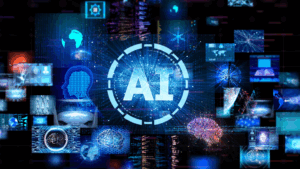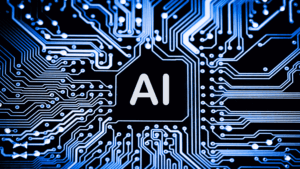In less than a year we have gone from the hype around Generative AI to Agentic AI. It’s been a whirlwind. I feel like I have just gotten my head around what Generative AI can do for me and now BOOM! A whole new world. We’re moving beyond AI that simply responds to prompts into an era of “Agentic AI” systems designed to act as intelligent partners, capable of managing complex tasks and pursuing goals with remarkable autonomy. While any powerful new technology brings questions about its impact, particularly on job roles, a closer look reveals Agentic AI’s potential to augment human capabilities and free us for more strategic and creative endeavors. This evolution promises exciting developments for higher education, offering new tools to enhance learning, research, and increased student success.
Understanding Agentic AI: More Than Just Smart Software
Agentic AI is different because it’s more than just advanced AI. Powered by foundation models, these systems are highly autonomous and can act with clear intentionality. Unlike previous AI, they’re capable of planning, making complex decisions, and adapting to changing environments. This means they can manage and execute complex tasks and even work with other AI systems, all while adjusting to dynamic situations.
Several key design patterns characterize Agentic AI, enabling its sophisticated capabilities:
- Reflection: Agents can critique their work and use this feedback for iterative improvement, refining outputs over time. For instance, an AI assisting with report generation could review its draft for coherence and accuracy, making adjustments without human intervention.
- Memory: Unlike standard Large Language Models (LLMs), which process information without retaining it (stateless) and have a limited “attention span” (context window), agentic AI systems have active memory. This includes short-term memory for current tasks and various forms of long-term memory (episodic, semantic, procedural) for deeper understanding and consistent behavior over time.
- Planning: This involves an agent’s ability to decompose complex tasks into manageable subtasks and coordinate their execution. This process includes understanding user intent, selecting appropriate models for each subtask, executing them, and then integrating the results into a comprehensive response. A planner agent might coordinate multiple specialized agents to achieve a larger goal.
- Tool Use: Agents can employ external software, services, or data sources to extend their functionality. This shifts the AI from a passive content generator to an active system that executes actions to achieve outcomes, such as using APIs to access real-time information or interact with other systems.
- Multiagent Collaboration: Multiple agents can collaborate, allocating tasks, sharing information, and even debating ideas to achieve solutions superior to those produced by a single agent. This also allows for specialization, where different agents focus on specific areas like analysis or programming.
- Autonomy: This fundamental characteristic describes an agent’s capacity for self-direction. It can independently initiate and execute actions to achieve a goal, requiring human oversight only when explicitly necessary
Agentic AI in Higher Education: A Collaborative Future
In higher education, Agentic AI offers the potential not to replace, but to empower. Consider these possibilities:
- Personalized Learning Companions: AI agents could provide tailored support to students, adapting to individual learning paces and styles. They could offer explanations, generate practice exercises, and provide feedback, freeing educators to focus on more in-depth discussions and mentorship. This aligns with the idea of agents augmenting human capabilities.
- Enhanced Research Capabilities: Researchers could delegate time-consuming tasks like literature searching, data collation, and even initial data analysis to AI agents. This would allow human researchers to concentrate on critical thinking, hypothesis generation, and interpreting complex findings, ultimately achieving outcomes that neither human nor AI could accomplish alone.
- Streamlined Administrative Processes: Agentic systems could autonomously handle complex administrative tasks like course scheduling, resource allocation, or managing admissions workflows. This would enable administrative staff to dedicate more time to strategic planning, student support services, and addressing complex institutional challenges.
Here’s how I have used Agentic AI. I needed to research and book a surf camp for my family. My son is a crazy 5-year-old that loves to ski, so I figured he would love to try surfing. Instead of spending hours sifting through websites, comparing reviews, and making calls, I utilized an AI-powered research tool.
I provided my criteria: specific coastal regions, a suitable beginner skill level, a defined budget, and preferred dates. The AI agent then took over. It scoured the internet, identified several potential surf camps, and presented me with a summarized list, highlighting the pros and cons of each based on my initial parameters. It could check availability in real-time, and once I made a selection, the system guided me through the booking process seamlessly, interfacing with the camp’s booking platform. The entire process, from initial research to final booking, was completed efficiently without the need to go on any websites or look at millions of different options. I got the three recommendations I wanted. This small example showcases how agents can autonomously manage multi-step tasks, simplifying complex processes and saving valuable time.
Navigating the Path Forward: Partnership and Prudence
It’s important to remember that Agentic AI is still an emerging field. Its full potential and limitations are not yet fully understood, and many core concepts are just beginning to be implemented in real-world scenarios. Development of these tools and frameworks is ongoing.
The aim of this technology is not to supplant human expertise but to create a symbiotic relationship where AI handles routine or data-intensive tasks, allowing humans to focus on strategic, creative, and empathetic endeavors. As agent-to-human interactions evolve, they will foster a more efficient and productive workforce.
However, as with any AI, careful consideration must be given to:
- Integration: Agentic AI must be thoughtfully integrated into broader automation strategies and existing workflows to enhance, and not disrupt, operations.
- Data Governance: Robust data guardrails, security protocols, and clear governance policies are crucial, especially when agents handle sensitive information.
- Ethical Considerations: Trust must be essential. This includes addressing potential biases in foundation models, ensuring transparency, and maintaining ethical oversight to prevent harmful outcomes.
Agentic AI holds considerable promise for transforming many aspects of our lives, including higher education. By understanding its capabilities, fostering thoughtful development, and focusing on collaboration, we can harness its power to augment human potential and create a more efficient and innovative future.




